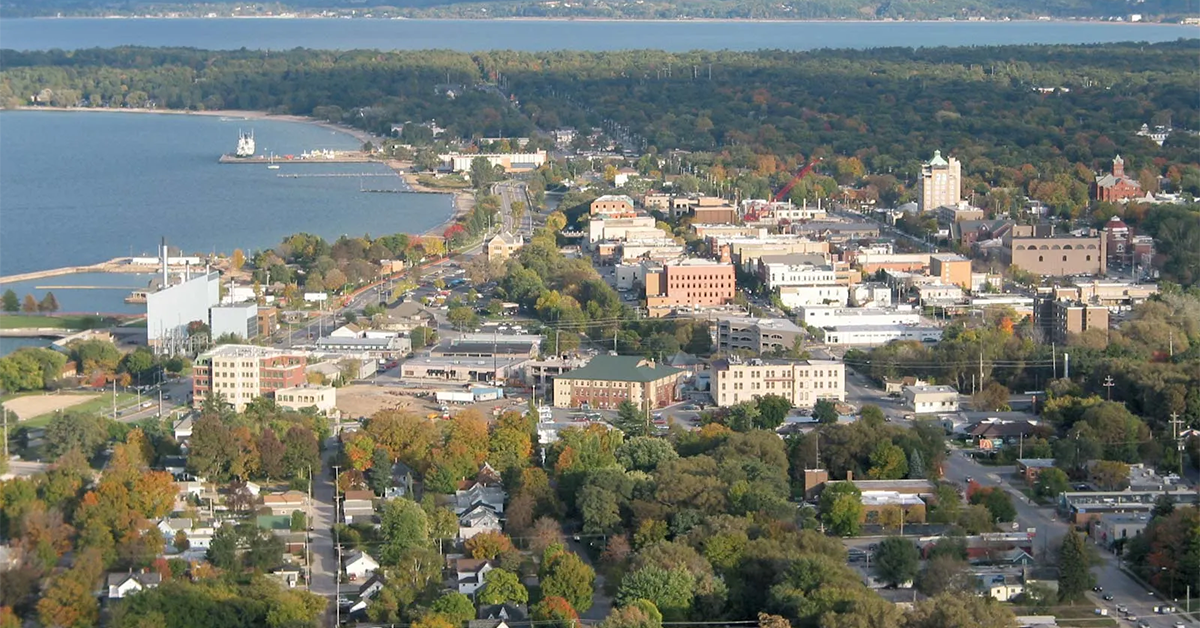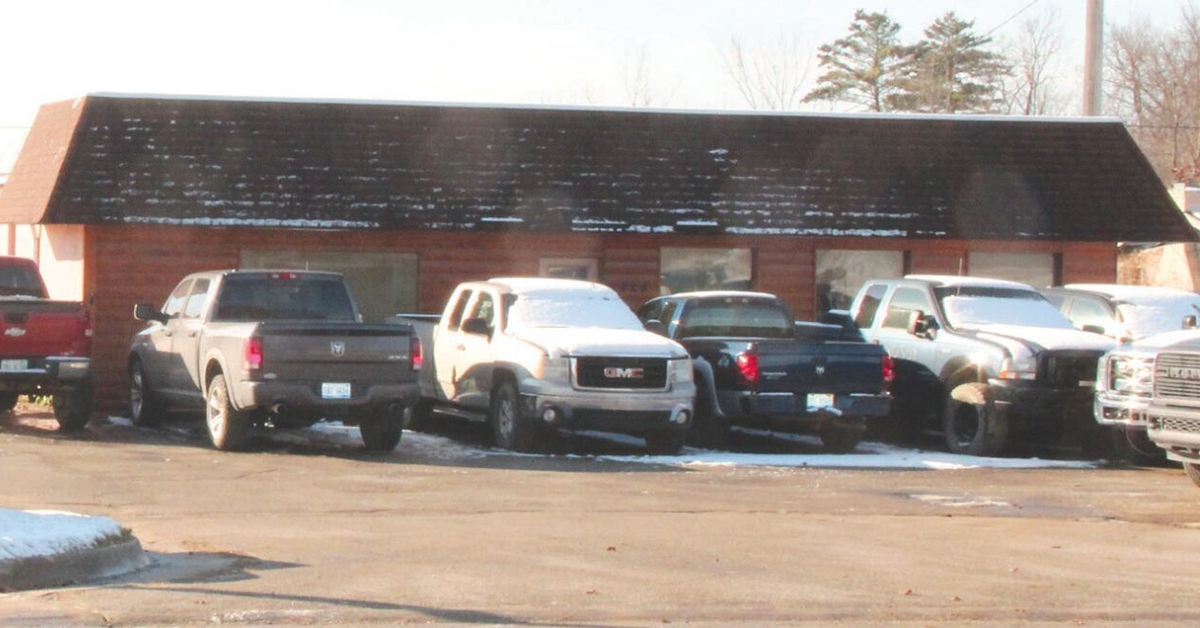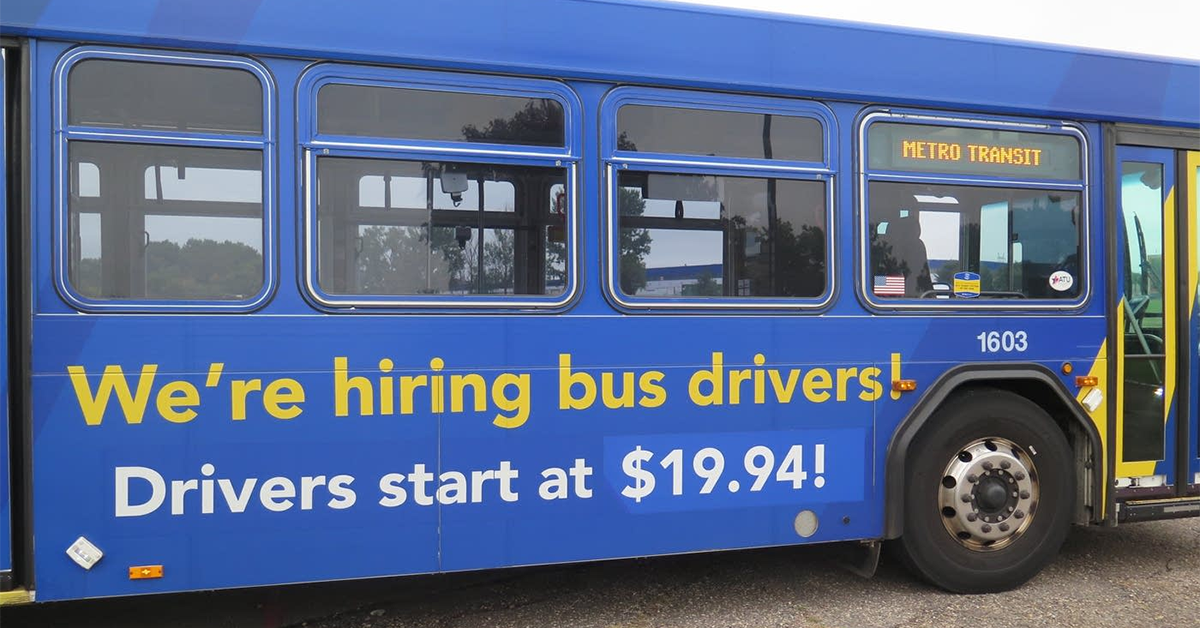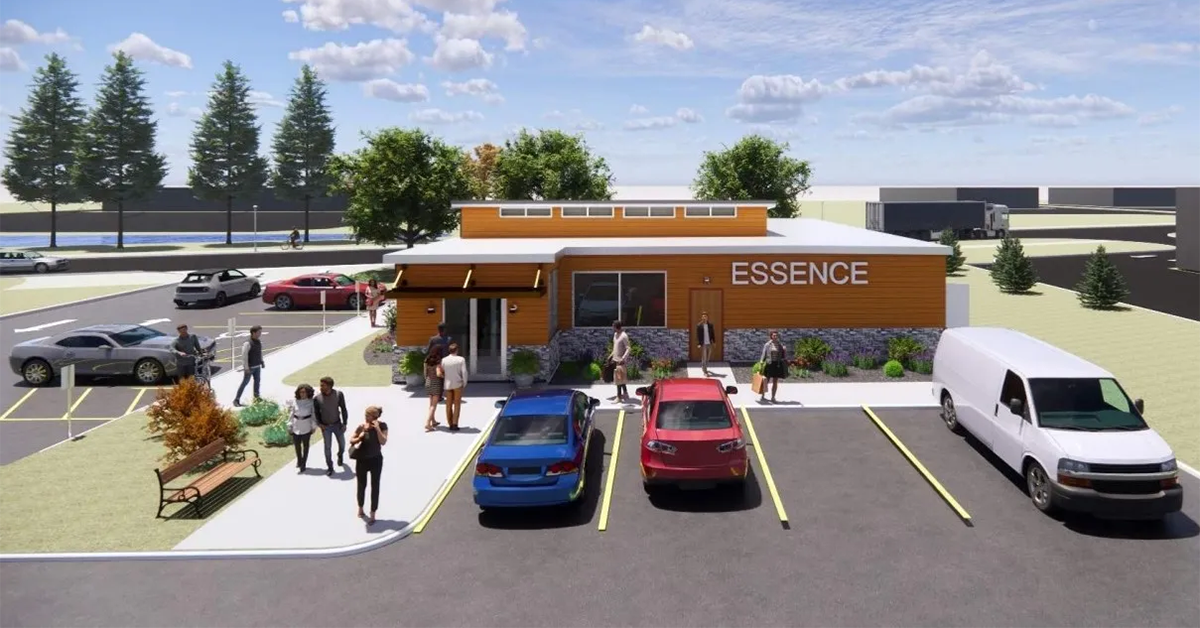Traverse City's Recreational Cannabis Industry Half a Year Later: A Flourishing Market Amid Challenges

Traverse City, known for its picturesque landscapes and vibrant tourism, ventured into the recreational cannabis market nine months ago, marking a significant shift in its economic and cultural landscape. This transition comes after a long period of anticipation, following the statewide legalization of adult-use cannabis in Michigan and a subsequent delay in the implementation of local regulations.
Sterling Heights Duo Receives Key Approval for Marijuana Facility in Lapeer

Sterling Heights residents Calvin Butrus and Fadi Syoufjy received approval from the Lapeer Zoning Board of Appeals (ZBA) for a parking space variance on Monday. This decision is a crucial step in their plan to establish a marijuana cultivation facility at a site previously occupied by Lapeer Ultimate Linings on Imlay City Road. The property, zoned I-1 Industrial, currently hosts a 6,150 square foot building.
The variance was necessary due to city and state regulations that require marijuana grow facilities to have a minimum of 15 parking spaces. Butrus and Syoufjy sought a reduction of nine spaces, intending to provide only six at their facility, named Farmboyz. The duo, who will primarily run the business, plans to carpool, utilizing just one parking space. They do not anticipate hiring many employees or requiring extensive parking for deliveries.
Their request was backed by the city's planning consultant, who pointed out the unique limitations of the site, including a large right of way for Imlay City Road and a railroad right of way, which restricts expansion of parking areas. Despite efforts, the applicants were unable to secure a shared parking agreement with neighboring properties. Adjacent to the site are Taylor's Family Car Care, a vacant parcel, and a marijuana processing facility, formerly Ray C's Extreme Store.
Lapeer city has authorized six marijuana dispensaries but has not capped the number of licenses for marijuana cultivation, processing, and transportation within the community. In a related development, the Lapeer Planning Commission is set to review a site plan for an 11,480-square-foot organic medical marijuana facility on Genesee Street. This project, initially approved in November 2021, is positioned between Arnold's Car Wash and the Exclusive-brand marijuana dispensary, with two residential duplexes nearby. The applicant must seek an extension or re-submit a new site plan if substantial progress is not made within a year of the original site-plan approval.
Drug Testing Dilemmas: How Michigan's Legalization of Marijuana Impacts Public Transit Hiring

Michigan's public transit system is facing a significant challenge in recruiting and retaining bus drivers, primarily due to stringent drug testing regulations. Clark Harder, the executive director of the Michigan Public Transit Association, highlighted a statewide driver shortage, attributing it to the rigorous alcohol and drug testing requirements for drivers.
Support us as a patron to access this exclusive article.
While we're reluctant to put content behind a paywall, we value our patrons by offering exclusive content just for them. Rest assured, our core mission of providing unbiased news stories remains accessible to all. Our aim is to deliver informative content with minimal ads, and your support means the world to us.
View our PatreonProposed Recreational Marijuana Microbusiness in Pinckney Awaits Approval

In Pinckney, a proposal for a new recreational marijuana microbusiness, Essence, is underway. The village planning commission is scheduled to review a special land use permit application on December 4th. This review could lead to a recommendation for the village council to approve the land use in a subsequent meeting.
Northville resident Marco Lytwyn is spearheading the project. Lytwyn's plan involves establishing Essence as a comprehensive marijuana facility, encompassing the sale, cultivation, and processing of marijuana products. However, before Essence becomes operational, there are several procedural steps to be completed. These include obtaining a Class A marijuana microbusiness license from the village and receiving site plan approval.
The proposed location for Essence is a currently unoccupied plot at 1268 E. M-36, situated between popular fast-food chains Wendy's and Taco Bell. As of now, Lytwyn has opted not to make public comments before the planning commission meeting, where he is expected to present detailed plans.
Preliminary designs for Essence showcase a multifaceted facility. The layout includes a retail showroom, complete with a cashier area, waiting lobby, and check-in space. Additionally, the plans indicate dedicated areas for marijuana cultivation (grow room), storage, and processing activities.
Under Michigan law, Class A marijuana microbusinesses are permitted to cultivate up to 300 marijuana plants on-site. These businesses can also process and sell marijuana and marijuana-infused products to individuals aged 21 and over.
There is also potential for development on a second parcel at the proposed site, though its specific use remains unspecified at this time.
The village of Pinckney has recently expanded its marijuana business categories, following the state's inclusion of Class A marijuana microbusinesses. This amendment, passed on September 25th, is part of the village's broader approach to adapting to evolving state regulations on marijuana businesses, as explained by village Zoning Administrator Julie Durkin.
The Pinckney planning commission will conduct its review of Lytwyn's special land use permit request at Village Hall, located at 220 S. Howell St.
Current Marijuana Business Landscape in Pinckney
Since Pinckney voters approved a 2020 ballot measure allowing marijuana businesses, there has been a gradual increase in such establishments. The Means Project, currently under construction at the former Pinckney Elementary site, is notable for having secured three different types of marijuana business licenses: retail, processing, and grow operation. However, the progress of this project appears to have slowed.
Pinckney holds the distinction of being the first municipality in Livingston County to permit marijuana businesses, overturning a previous ban. The 2020 ballot measure passed with 54.3% approval.
Presently, Pinckney offers four types of marijuana business licenses: Class A microbusiness, another microbusiness category, a safety compliance facility, and a secure transportation operation. According to Village Clerk Jill Chapman, while there have been inquiries, no additional applications have been submitted.
Lawsuit Filed Against Detroit for Revoking Cannabis Facility Approvals

Four Detroit-based companies are challenging the city's decision to revoke their cannabis cultivation and processing facility's approvals, following a zoning map update that placed the facility in a drug-free zone. The lawsuit, recently transferred to the Eastern District of Michigan federal court, names Cannabis Professional Design LLC, MB City Transportation LLC, HZ Detroit Holdings 1 LLC, and HZ Detroit Holdings 2 LLC as plaintiffs.
The conflict arose when Detroit Community High School, operational since at least 2009 but not included in the former zoning map, appeared in the new zoning map. This inclusion led to the revocation of the companies' licenses and denial of business license applications. The plaintiffs argue that the city's Board of Zoning Appeals views drug-free zones as an absolute criterion, overriding prior approvals.
The lawsuit emphasizes that the city's action to revoke permits was inconsistent with its usual policy. Past instances of zoning violations by established marijuana businesses did not result in revocation. The companies contend that the city's decision was arbitrary and deprived them of a vested property interest.
The plaintiffs highlight the significant financial impact of the decision, with over $15 million invested in the facility and additional agreements worth more than $20 million potentially at risk. They had also hired over a dozen employees in anticipation of beginning operations.
The lawsuit seeks three forms of relief: a writ of mandus, declaratory relief, and a declaration that the property and facility's permits are valid and enforceable. The companies aim to reverse the revocation of special land use permits, certificates of occupancy, and building permits.
As of now, Eric Gaabo of the City of Detroit Law Department, representing the city, has not commented on the case. Christine Lynne Constantino of Scott F. Roberts Law PLC represents the four companies.
Viridis Laboratories Accredited by NIHC Amidst Controversy

Michigan-based Viridis Laboratories, a cannabis testing company, recently received accreditation from the National Industrial Hemp Council of America (NIHC). This recognition authorizes Viridis to conduct a range of tests on hemp products, including assessments for pesticides, heavy metals, potency, microbiology, and residual solvents. The NIHC accreditation is a significant endorsement, indicating that Viridis adheres to internationally recognized standards, which are valued by global regulators. It also underscores the company's dedication to consumer and patient health and safety.
Greg Michaud, CEO of Viridis Laboratories, expressed his gratitude for the recognition, emphasizing the company's commitment to delivering safe, high-quality hemp products. This recognition from the NIHC serves as a confirmation of the company's adherence to the highest quality and safety standards.
For a laboratory to be recognized by the NIHC, it must first obtain certification from the American Association for Laboratory Accreditation (A2LA). Viridis achieved this certification for its Lansing and Bay City labs in October, becoming the only cannabis testing company in Michigan to successfully pass A2LA's rigorous testing procedures at that time. The A2LA is internationally recognized in the United States for providing comprehensive laboratory accreditation services.
Despite these recent achievements, Viridis Laboratories has faced significant controversy and accusations. Allegations against the company include insufficient lab supervision, adoption of non-approved potency testing processes, and failure to follow approved microbial testing processes. Viridis has responded to these accusations with counter-claims, including allegations of falsehoods in reports by CRA investigators and criticisms of CRA employees' conduct and qualifications. The company has also highlighted inconsistencies and confusion in the application of internal CRA policies.
The Cannabis Regulatory Agency (CRA) has described the early days of legalization as "the Wild Wild West," focusing initially on assisting licensed businesses in understanding regulations rather than strict enforcement. The CRA has admitted that using other labs for quality checks is not ideal and is working towards establishing its own reference laboratory.
In the scientific aspect, CRA backs its policies with studies, such as one indicating that only 1% of all cannabis should exceed 27% THC potency. However, Viridis has been accused of manipulating THC levels by adding kief back into homogenized test samples and using smaller than standard sample sizes, leading to potential inaccuracies.
Furthermore, the Viridis Lansing lab has been reported to detect mold 89% less frequently than other labs, attributed to inadequate analysis time, passing visibly moldy flower, and poor incubation log maintenance.
Initially, Viridis was known for producing unusually low potency test results, which also raised questions about its sample preparation methods.
These controversies, including humorous instances during virtual meetings and debates over evidence categorization, highlight the complex and evolving nature of cannabis regulation and testing in Michigan.


 Helpful Links
Helpful Links